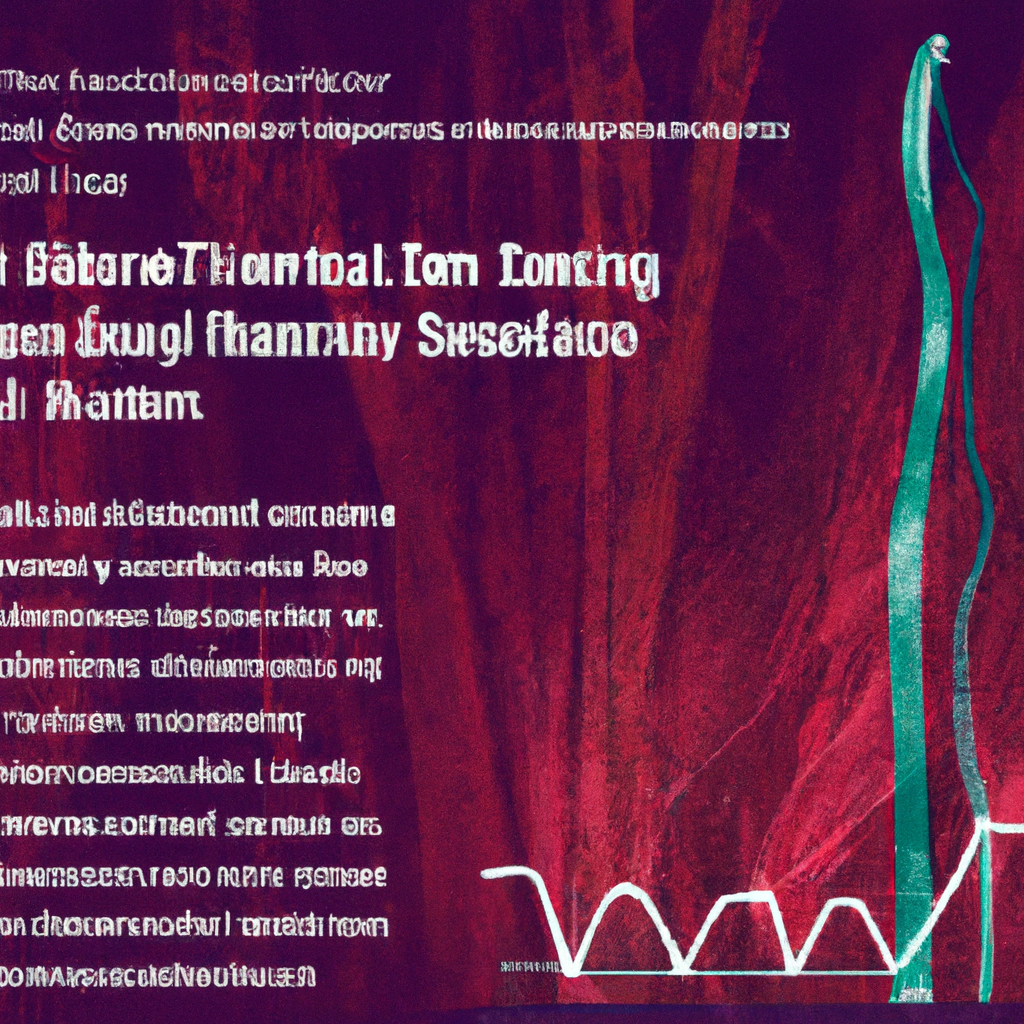Are you seeking reliable information on stem cell clinical trials in Malaysia? Look no further! In this article, we will provide you with the essential tools and strategies to help you assess the credibility of such information. As an expert in stem cell research, you can trust that the content we present will be comprehensive, informative, and backed by scientific evidence. So, let’s delve into the world of stem cell clinical trials and empower you to make informed decisions about your health.

Understanding Stem Cell Clinical Trials in Malaysia
Stem cell clinical trials play a crucial role in advancing medical research and potentially revolutionizing treatment options. In Malaysia, these trials are conducted to test the safety and effectiveness of stem cell therapies in various medical conditions. As a prospective participant or someone interested in learning about these trials, it is essential to have a comprehensive understanding of the process and various factors to consider.
Types of Stem Cell Clinical Trials
Before delving into the credibility assessment, it is crucial to familiarize yourself with the different types of stem cell clinical trials. These trials can be categorized into three main types:
-
Phase 1 Trials: Phase 1 trials focus on assessing the safety of a new stem cell therapy in a small group of participants. The primary objective is to determine the appropriate dosage and potential side effects.
-
Phase 2 Trials: Phase 2 trials are conducted to evaluate the efficacy and safety of the stem cell therapy in a larger group of participants. These trials aim to gather more information about the therapy’s effectiveness and potential benefits.
-
Phase 3 Trials: Phase 3 trials involve a larger sample size and aim to confirm the therapy’s effectiveness and monitor any rare side effects. These trials are crucial in providing evidence for regulatory approval.
Regulatory Framework for Stem Cell Clinical Trials in Malaysia
In Malaysia, the conduct of stem cell clinical trials is regulated by several agencies to ensure the safety and ethical standards. The key regulatory bodies include the Malaysian Medical Research Ethics Committee (MREC) and the National Pharmaceutical Regulatory Agency (NPRA). MREC ensures the protection of participants’ rights and welfare, while NPRA oversees the regulation and approval of stem cell products used in clinical trials.
Importance of Assessing Credibility
Assessing the credibility of stem cell clinical trial information is of utmost importance to make informed decisions and safeguard your well-being. The following sections will guide you through various methods and considerations to evaluate the credibility of such information.
Evaluating the Source of Information
The credibility of stem cell clinical trial information heavily relies on the reliability of the sources providing the information. To assess the credibility, consider the following factors:
Recognizing Reputable Sources
When evaluating the information source, look for established and reputable institutions or organizations involved in stem cell research. Academic institutions, government research agencies, and renowned medical centers are usually reliable sources.
Checking the Credentials of the Source
Examine the credentials of the individuals or institutions providing the information. Look for their expertise in stem cell research, relevant qualifications, and experience in the field. This information can be found through their official websites or professional databases.
Verifying Affiliations and Expertise
Ensure that the source has affiliations with reputable stem cell research organizations or regulatory bodies. This affiliation indicates their commitment to upholding scientific and ethical standards. Additionally, verify if the source has published peer-reviewed articles in credible scientific journals.

Assessing Study Design and Methodology
The study design and methodology of a clinical trial play a significant role in determining its credibility. Consider the following aspects when evaluating the design and methodology:
Consideration of Sample Size and Randomization
A credible clinical trial should have an adequate sample size that represents the target population. Look for trials that employ randomization, where participants are assigned randomly to treatment and control groups. Randomization helps minimize biases and ensures unbiased assessment of the therapy’s effectiveness.
Evaluation of Control Groups
A control group is essential in clinical trials to compare the effects of the experimental therapy with standard treatments or a placebo. A well-designed trial should incorporate a control group to provide a basis for comparison.
Assessment of Endpoint Measures
Endpoint measures refer to the specific outcomes or parameters used to determine the effectiveness of a stem cell therapy. It is important to assess whether the trial uses recognized and appropriate endpoint measures that are relevant to the medical condition being studied.
Reviewing Peer-Reviewed Publications
Peer-reviewed publications serve as a critical source of credible information in the scientific community. When reviewing such publications related to stem cell clinical trials, consider the following:
Importance of Peer Review
The peer-review process ensures that the published research has undergone rigorous assessment by experts in the field. It helps validate the methodology, analysis, and conclusions of the study. Peer-reviewed publications provide a higher level of credibility compared to articles that have not undergone this process.
Identifying Credible Journals
Focus on publications from well-established and reputable scientific journals that specialize in stem cell research. These journals typically have stringent standards for accepting research articles and conduct thorough peer-review processes.
Examining Study Results and Conclusions
Evaluate the study’s results and conclusions presented in the publication. Assess whether they are supported by strong evidence, statistical analysis, and appropriate interpretation. Be cautious of publications that make exaggerated claims or lack robust evidence.

Analyzing Funding and Conflict of Interest
Funding sources and potential conflict of interest can influence the credibility of stem cell clinical trials. Consider the following factors:
Understanding Funding Sources
Evaluate the funding sources of the clinical trial. Transparency regarding funding is vital, as it indicates the independence and integrity of the study. Trials funded by reputable organizations or government agencies tend to be more credible.
Disclosure of Potential Conflicts of Interest
Researchers and institutions should disclose any potential conflicts of interest, such as financial relationships with stem cell product manufacturers or vested interests in the trial’s outcomes. Transparent disclosure helps assess the credibility and impartiality of the research.
Implications of Bias
Be aware of the potential bias that may arise from financial relationships or vested interests. Bias can influence the design, methodology, analysis, and interpretation of the trial results. Analyzing the funding and potential conflicts of interest helps identify any bias that may affect the credibility of the trial.
Seeking Professional Advice
Consulting medical professionals and engaging with stem cell research organizations are essential steps in assessing the credibility of stem cell clinical trial information. Consider the following avenues:
Consulting Medical Professionals
Reach out to healthcare professionals, such as specialists or researchers in the relevant field, for expert opinions and insights. They can provide valuable guidance based on their experience and knowledge.
Engaging with Stem Cell Research Organizations
Connect with reputable stem cell research organizations, such as academic institutions or non-profit foundations involved in scientific research. These organizations often have resources and expertise available to educate and guide individuals seeking credible information on clinical trials.
Attending Seminars and Workshops
Participate in seminars and workshops organized by reputable organizations to gain a better understanding of stem cell research and clinical trials. These events provide opportunities to interact with experts, ask questions, and stay updated with the latest advancements in the field.

Considering the Consensus of Expert Opinion
Evaluating the consensus of expert opinions can provide valuable insights into the credibility of stem cell clinical trial information. Consider the following:
Evaluation of Consensus Statements
Look for consensus statements or guidelines issued by reputable scientific organizations or regulatory bodies. These statements reflect the collective agreement of experts in the field and provide a consensus-based approach to stem cell research.
Applying Critical Thinking
Apply critical thinking when reviewing different expert opinions. Assess the evidence and supporting arguments presented by each expert. Analyze the consistency and coherence of their opinions to form a well-rounded assessment.
Considering the Weight of Expert Opinion
Give more consideration to the opinions of experts who are widely recognized and have a substantial body of research supporting their views. The weight of expert opinion can indicate the credibility and reliability of stem cell clinical trial information.
Monitoring Clinical Trial Registries
Tracking stem cell clinical trials through dedicated registries allows you to access reliable and up-to-date information. Consider the following steps:
Accessing National and International Registries
Explore national and international clinical trial registries that provide comprehensive databases of ongoing and completed trials. Registries such as ClinicalTrials.gov and the Malaysian National Medical Research Register (NMRR) can help you access reliable information.
Reviewing Trial Information
Examine the details of the clinical trials listed in the registries. Look for essential information such as the trial phase, recruitment status, objectives, and contact information for inquiries. This review enables you to assess the credibility and relevance of the trials.
Tracking Trial Progress
Continuously monitor the progress of the trials of interest. Observe if the trial is consistently updated, progresses through different phases, and ultimately publishes its results. Active trial progress indicates a commitment to transparency and provides reliable information for assessment.

Examining Trial Oversight and Ethics
The oversight and ethics of stem cell clinical trials play a crucial role in determining their credibility. Consider the following aspects:
Understanding Ethical Review Boards
Ethical review boards, such as the Malaysian Medical Research Ethics Committee (MREC), oversee the ethical conduct of clinical trials. Assess whether the trial has obtained ethical approval from these boards, indicating compliance with ethical standards and participant protection.
Evaluating Institutional Approval
Institutional approval from reputable medical centers or research institutions further reinforces the credibility of stem cell clinical trials. It indicates that the trial has undergone scrutiny by experienced professionals who recognize its scientific and ethical merit.
Assessing Compliance with Good Clinical Practices
Good Clinical Practice (GCP) guidelines outline the ethical and scientific standards for the design, conduct, and reporting of clinical trials. Check if the stem cell clinical trial adheres to GCP guidelines to ensure the trial’s credibility and reliability.
Reviewing Patient Feedback and Experiences
Patient feedback and experiences provide valuable insights into the credibility and effectiveness of stem cell clinical trials. Consider the following steps:
Exploring Patient Forums and Support Groups
online patient forums and support groups can provide firsthand accounts of individuals who have participated in stem cell clinical trials. Engage with these communities to gain insights into participants’ experiences, benefits, and potential side effects.
Assessing Customer Reviews and Testimonials
Some stem cell clinics or therapy providers may have customer reviews or testimonials on their websites. Although these should be approached with caution, they can provide additional perspectives on the experiences and outcomes of the clinical trials.
Considering the Balance of Feedback
When reviewing patient feedback and experiences, consider the overall balance of feedback. Take into account both positive and negative reviews, and sensitivity to the potential bias or subjectivity of individual experiences.
In conclusion, assessing the credibility of stem cell clinical trial information in Malaysia requires a thorough understanding of various factors. By evaluating the source of information, analyzing study design and methodology, reviewing peer-reviewed publications, analyzing funding and conflict of interest, seeking professional advice, considering the consensus of expert opinion, monitoring clinical trial registries, examining trial oversight and ethics, and reviewing patient feedback and experiences, you can make informed decisions and contribute to the advancement of stem cell research in Malaysia.




